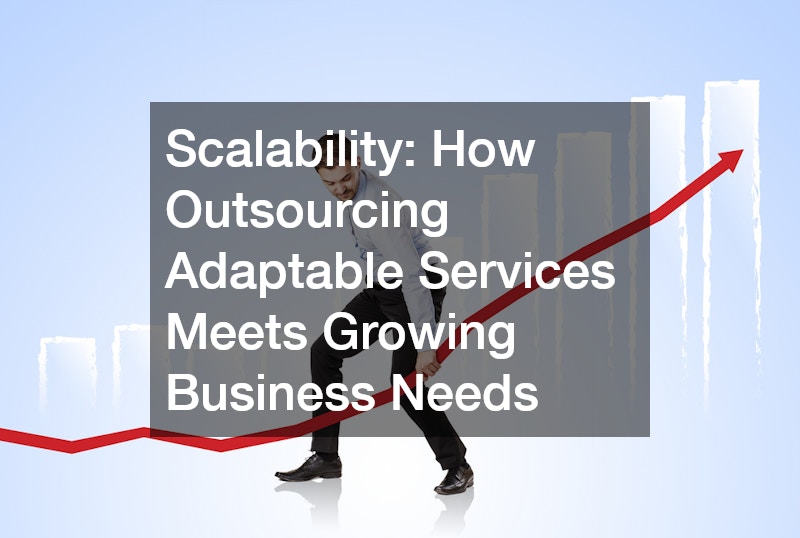In today’s volatile market environment, the types of outsourcing available to businesses have become a crucial element of strategic management. Outsourcing refers to the hiring of external firms to handle business activities for you, allowing companies to focus on their core activities. With the onset of globalization and technological advancements, businesses are better positioned than ever to take full advantage of the outsourcing services available to them.
This article aims to capture the range of types of outsourcing in play and illustrate how they meet the growing and varied needs of businesses. By exploring areas such as truck fleet management, warehouse inventory management services, and IT support services, we’ll see how leveraging external expertise allows for scalability and improved efficiency. Additionally, as businesses expand, they seek specialized outsourcing options like merger and acquisition services to facilitate seamless growth transitions.
The various types of outsourcing services cater to different industry needs, allowing businesses to adopt flexible and adaptable strategies. Outsourcing can significantly lower costs, enhance service delivery efficiency, ensure high-quality performance, and enable access to some of the best industry practices. Through this lens, we’ll investigate how tailored outsourcing solutions help businesses meet robust growth ambitions.
Scalability: How Outsourcing Adaptable Services Meets Growing Business Needs

Scalability is a significant advantage of the various types of outsourcing available to businesses. As companies grow, they may face challenges in handling increased workload and demand for resources. By engaging in outsourcing, businesses can access external resources and skills, allowing them to scale operations up or down without substantial investment in new infrastructure. For instance, leveraging warehouse inventory management services can significantly aid firms in scaling their physical storage needs without the burden of expanding their real estate.
The ability to quickly adapt to new market demands is a strategic advantage that types of outsourcing provide. Companies can diversify their operations by embracing specialized outsourcing, such as space management systems, which optimize the use of office and warehouse spaces. This ensures businesses can rapidly adjust to market changes without sacrificing efficiency or service quality.
Outsourcing adaptable services also supports scalability by lowering the need for massive in-house teams and high operational costs. Businesses can take advantage of seasonal trends or new market opportunities without the risk of overextending themselves financially. The flexibility that types of outsourcing offer can propel businesses forward, allowing them to maintain competitiveness while efficiently managing their growth trajectory.
The Strategic Advantage of Leveraging Specialized Outsourcing for Key Business Functions
Outsourcing specialized functions permits businesses to focus on their primary goals and competencies. Specialized types of outsourcing, such as network management services and payroll services, allow businesses to leverage expert skills and advanced technologies, resulting in better quality and more efficient operations. This adoption of cutting-edge solutions not only supports business continuity but also fosters an environment for innovation by freeing up internal resources.
For instance, by adopting IT support services, companies can ensure seamless operations and immediate response to any tech-related disruptions. This proactive approach minimizes downtime and boosts productivity, allowing businesses to concentrate on revenue-generating activities. Furthermore, outsourcing catering services during corporate events or functions can enhance customer experience by providing professional-grade catering without diverting internal resources from their essential roles.
Outsourcing provides a strategic advantage by enabling businesses to access services not traditionally within their expertise. Employing these specialized services, businesses can benefit from the latest industry practices and compliance standards without incurring significant costs of in-house development. Consequently, the strategic implementation of varied types of outsourcing can substantially enhance a company’s operational framework, ensuring it remains efficient and effective over the long term.
Evaluating Risks and Benefits in Choosing the Right Type of Outsourcing for Your Business

The decision to outsource must be carefully evaluated to balance benefits against potential risks. Choosing the appropriate types of outsourcing requires a thorough understanding of a company’s core and non-core functions, ensuring that the services outsourced align with business objectives. However, risks such as loss of oversight, potential quality issues, and data security must be managed proactively.
One key consideration in selecting an appropriate outsourcing partner is assessing their reputation and expertise in managing specific business functions. For example, outsourcing truck fleet management services can streamline logistics and transportation tasks efficiently. However, firms must ensure that the outsourced partner complies with regulatory standards, possesses a solid track record, and maintains stringent safety practices.
Businesses also need to predict potential complications and risks associated with different types of outsourcing. The evaluation process should include reviewing contractual agreements, monitoring service delivery performance, and establishing comprehensive contingency plans. With the right approach, businesses can derive immense benefits from outsourcing while mitigating the associated risks effectively.
Key Considerations for Choosing a Warehouse Inventory Management Service

When considering outsourcing warehouse inventory management services, businesses must appraise several critical factors. The choice between multiple providers hinges on their ability to offer comprehensive visibility and control over inventory levels. A reliable inventory management partner will use advanced technology to provide real-time tracking and forecasting, ensuring optimal stock levels and avoiding overstock or stockouts.
Another essential consideration is the provider’s ability to integrate effortlessly with existing business systems. Seamless integration minimizes disruptions and enhances operational efficiency, facilitating smooth data flow across departments. Partnering with a warehouse inventory management service that can adapt to your space management system ensures synchronized operations across the entire supply chain.
Lastly, assess the provider’s capacity to adapt to the changing needs of your business. As market demands fluctuate, the scalability of the service becomes crucial in handling increased or reduced loads efficiently. An adaptable warehouse inventory management service plays a crucial role in ensuring that businesses maintain agility, which is essential for responding quickly to evolving industry standards and consumer demands.
How Space Management Systems Optimize Operational Efficiency
Space management systems are integral to optimizing operational efficiency, especially in industries requiring extensive storage and office space management. By leveraging types of outsourcing for space management, firms can optimize the layout and usage patterns of available spaces, enhancing productivity and reducing idle times in operations. Technology-driven systems offer predictive analytics to foresee inventory needs and spatial requirements, aiding informed decision-making processes.
Furthermore, a well-implemented space management system can streamline workflows and improve workforce productivity. By ensuring that workspace configurations align with operational demands, businesses minimize time lost due to spatial inadequacies. Outsourcing these services allows companies to benefit from sophisticated tools without incurring the high costs associated with purchasing and maintaining these systems independently.
Scalability is also a critical feature of outsourced space management systems, providing the flexibility needed to accommodate business growth. As companies expand, optimized space management ensures continuity in operational efficiency, preventing any disruptions in service delivery. When integrated with network management services, these systems further enhance coordination and communication, pivotal for sustaining growth and competitiveness in any industry.
The Importance of Network Management Services for Seamless Operations

Efficient and seamless operations are critical for business success, underscoring the importance of network management services in today’s connected world. By outsourcing these services, businesses can ensure robust network infrastructures capable of supporting continuous and secure data flow. This advantage minimizes downtime and reduces operational disruptions, allowing for seamless internal and external communications.
Network management services extend beyond basic connectivity, providing strategic oversight of digital and data activities. From managing bandwidth allocation to implementing cybersecurity protocols, these services ensure that the network infrastructure aligns with the business’s operational goals. The types of outsourcing that include these services bring expert management practices into play, enhancing overall reliability and security.
For companies experiencing rapid growth, the scalability and flexibility offered by network management services are invaluable. Organizations can quickly adapt to increased data demands, ensuring they remain competitive in an increasingly digital marketplace. In fulfilling this essential role, network management services contribute to maintaining a business’s overarching strategic objectives, and supporting long-term success.
When IT Support Services Are Crucial for Business Continuity
In an era where businesses are heavily reliant on technology, IT support services have become a cornerstone of business continuity. Outsourcing these services provides organizations with immediate access to technical expertise necessary for maintaining system uptime and resolving hardware and software issues efficiently. This response capability ensures minimal disruption to daily operations, enabling businesses to offer consistent services to their clients and stakeholders.
Furthermore, IT support services play a key role in implementing and maintaining robust cybersecurity measures, protecting sensitive data from unauthorized access and breaches. The presence of a proficient IT infrastructure is vital in today’s cybersecurity landscape, ensuring secure digital transactions and safeguarding company information. With data breaches posing a significant threat to business integrity, partnering with knowledgeable IT support service providers can significantly mitigate these risks.
The types of outsourcing that include IT support services often come with scalable solutions that help companies adjust resources based on their needs. Whether tackling peak periods of demand or managing day-to-day tasks, outsourcing IT support services allow companies to focus on core functions with peace of mind. This strategic approach ensures that technological aspects of business continuity are maintained, preserving long-term operational stability.
Managing Costs and Quality with Plumbing Contractors Outsourcing
Outsourcing plumbing contractors is an effective way for businesses to manage maintenance tasks while controlling costs and ensuring service quality. By leveraging these types of outsourcing, companies can access specialized skills necessary for the proper installation, maintenance, and repair of plumbing systems. Professional contractors bring in-depth industry knowledge and adhere to recognized standards, ensuring high-quality outcomes.
Another significant advantage is cost management. Outsourcing to plumbing contractors allows businesses to benefit from bulk discount rates for repair services. Instead of maintaining an in-house team for occasional plumbing needs, outsourcing offers flexibility and cost-effectiveness, especially for businesses needing irregular maintenance work.
Quality assurance is often achievable with proven and accredited plumbing service providers. By outsourcing these tasks, companies can minimize the risks associated with potential defects and repair delays. Reliable contractors ensure that businesses adhere to compliance standards, helping to avoid potential regulatory fines that could impact business operations adversely.
Leveraging Commercial Cleaning Services for a Healthier Work Environment
Creating a healthy work environment by outsourcing commercial cleaning services encourages both productivity and employee satisfaction. A clean workspace reduces health-related absences, ensuring a consistent and productive workforce. By choosing professional cleaning services, businesses can maintain an inviting and hygienic atmosphere, essential for boosting employee morale and performance.
Commercial cleaning services provide a comprehensive range of services, including regular cleaning schedules, specialized disinfection processes, and waste management activities. Companies engaging in these types of outsourcing benefit from expert and reliable service delivery without stretching their internal resources. For instance, by keeping spaces clean and organized, seamless integration with space management systems is achievable, further optimizing workplace efficiency.
The expertise of professional cleaning services also extends to compliance with environmental standards and health regulations. Outsourcing these tasks ensures that businesses meet stringent local and federal cleanliness requirements, safeguarding employee and customer health. Consequently, leveraging commercial cleaning services continues to be an invaluable strategy for maintaining a healthy, productive working environment.
How Payroll Services Streamline Financial Operations for Small and Large Businesses
Payroll services are indispensable for streamlining financial operations across small and large businesses. By outsourcing payroll functions, companies can ensure accurate and timely payment of salaries, taxes, and other deductions, maintaining employee satisfaction and regulatory compliance. These services often come with comprehensive solutions that include managing employee benefits, tax filings, and generating reports for financial analysis.
Outsourcing payroll services mitigates risks associated with inaccuracies and non-compliance, which could result in costly fines and damage to a firm’s reputation. Expert providers stay abreast of changes in tax legislation and compliance standards, ensuring that all payroll activities are in line with current laws. These types of outsourcing enable businesses to maintain control over critical financial functions without the overhead of an in-house payroll department.
For both small start-ups and large enterprises, payroll services offer the flexibility needed to handle fluctuating workforce sizes efficiently. As businesses aim for growth, outsourced payroll solutions scale with demand, reducing the administrative burden associated with handling an increased number of employees. The consistency and reliability offered by outsourcing enhance strategic financial management across the organization.
The Impact of Outsourcing Merger and Acquisition Services on Business Growth
A well-executed merger or acquisition can spell an opportunity for significant business growth, making the outsourcing of merger and acquisition services critically important. These types of outsourcing allow businesses to leverage expert insights, extensive networks, and specialized skill sets that facilitate smooth transitions. Successful mergers and acquisitions depend heavily on thorough market analysis and due diligence, which seasoned external partners can effectively provide.
The complexity of mergers and acquisitions necessitates specialized financial, legal, and compliance expertise that outsourcing partners bring to the forefront. From evaluating potential acquisition targets to navigating regulatory requirements, outsourced services ensure that all aspects of the merger or acquisition are handled with precision and strategic insight. This minimizes risks and maximizes the potential for both short-term and long-term success.
Importantly, outsourcing merger and acquisition services ensures that businesses maintain operational focus during the transition phase. By offloading the intricate processes involved, companies can continue to focus on their core activities, maintaining service delivery and employee morale. Outsourcing these critical services enables seamless integration post-merger, bolstering overall growth and stability.
When Outsourcing Catering Services Improves Event Planning and Customer Experience
Catering services play a pivotal role in enhancing event planning and customer experience, making their outsourcing an attractive option for many businesses. Events such as corporate meetings and client mixers demand attention to detail in terms of food quality and service excellence. By engaging professional catering services, businesses can ensure their events are orchestrated with culinary artistry and logistical precision, leaving a lasting impression on attendees.
Outsourcing catering services provides access to diverse menu options and customizable solutions catering to specific dietary needs and preferences. Professional caterers bring industry expertise and experience to the table, ensuring that events are flawlessly executed while alleviating the stress on businesses’ internal resources. This results in an enhanced focus on other critical aspects of event planning, reinforcing an organization’s ability to deliver outstanding customer experiences.
The coordination between catering providers and other outsourced services, such as commercial cleaning or event planning firms, can lead to smoother, more efficient events. Integrated service delivery ensures that all aspects of the event proceed without hiccup, allowing businesses to enjoy well-executed gatherings that support both client satisfaction and brand reputation. The superior quality and professionalism derived from outsourcing these services contribute significantly to the success of corporate functions.
Understanding the Role of Truck Fleet Management in Business Outsourcing
Truck fleet management is essential for firms that rely on logistics and distribution, making it a key area for outsourcing opportunities. Managing a fleet involves complex operations ranging from vehicle maintenance to routing optimizations, which are well-handled by specialized service providers. Such outsourcing ensures efficiency in transportation activities, enhancing delivery performance and minimizing costs.
The need for compliance with strict regulatory standards in fleet operations further justifies outsourcing these services. Professional fleet management services maintain updated knowledge of logistics regulations and safety protocols, ensuring your operations adhere to industry and governmental standards. This reduces the risk of violations, enhancing operational integrity and protecting business reputations.
Another advantage of outsourcing truck fleet management lies in leveraging advanced technology and data analytics tools. These tools provide actionable insights into vehicle performance, route efficiencies, and cost management. Outsourcing partners can harness this data to continuously improve logistics strategies, ensuring that firms remain competitive in a demanding market. By choosing the right types of outsourcing in truck fleet management, businesses can enjoy improved deliverables while focusing on their broader goals.
As businesses navigate the complexities of today’s global economy, integrating different types of outsourcing into their strategic frameworks becomes increasingly important. The diverse benefits of outsourcing—from cost reductions and scalability to access to specialized expertise—make it an invaluable asset across various sectors. By fine-tuning their approach to outsourcing, businesses can achieve greater flexibility and resilience, allowing them to focus on core competencies and achieve sustainable growth.
From warehouse inventory management services to IT support functions, each type of outsourcing brings unique advantages that can be tailored to fit the specific needs of an organization. The right outsourcing partnerships enable businesses to adapt to dynamic market demands, thereby strengthening operational capabilities and enhancing overall service quality. Embracing these strategic external alliances ensures long-term success and competitiveness in a rapidly evolving business landscape.
Ultimately, navigating the various implications of outsourcing requires a clear understanding of each option’s potential and fit within the company’s strategic objectives. Closely aligned partnerships can lead to significant competitive advantages, fostering innovation and growth in industries ranging from logistics to corporate events. As shown throughout this article, outsourcing remains a driving force in modern business strategy, playing an integral role in reaching growth potential and meeting organizational goals.
